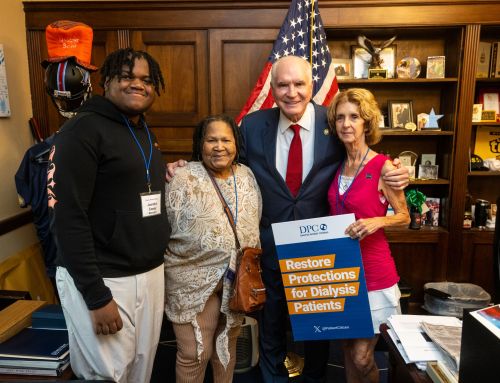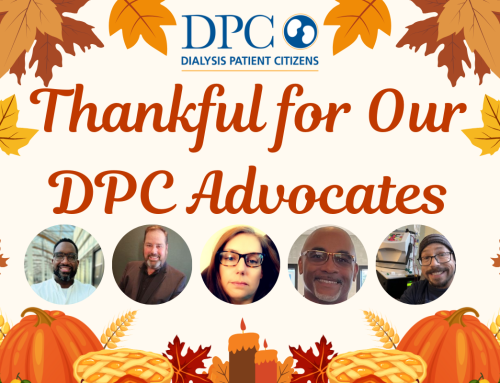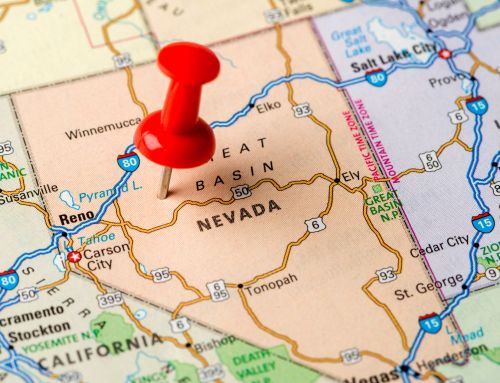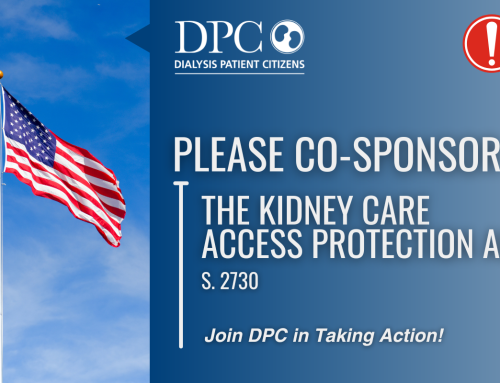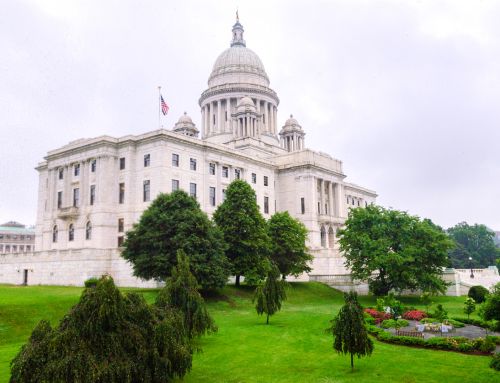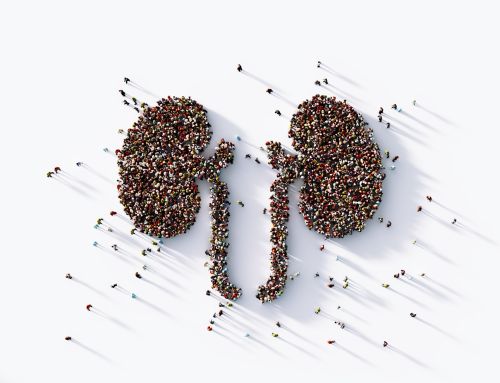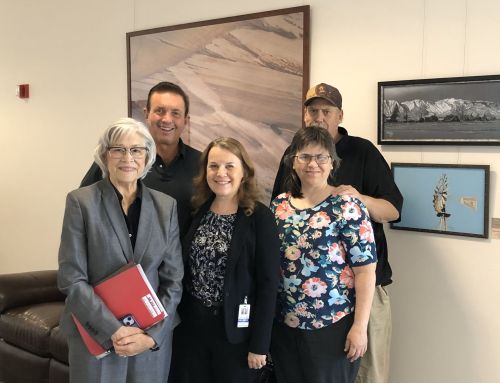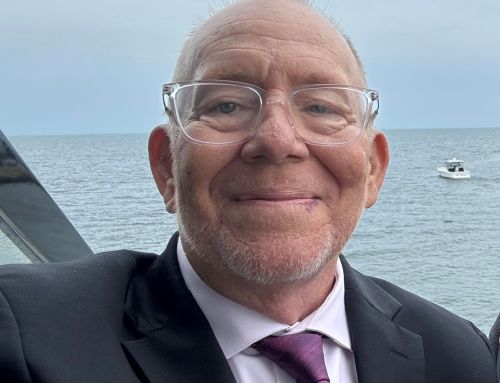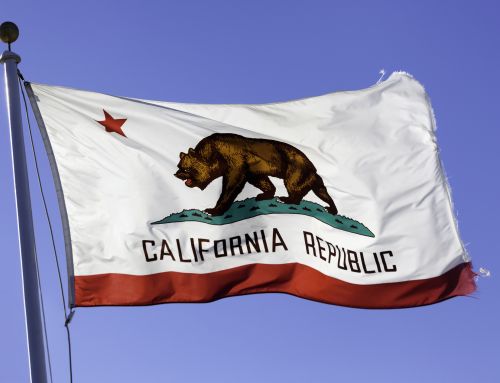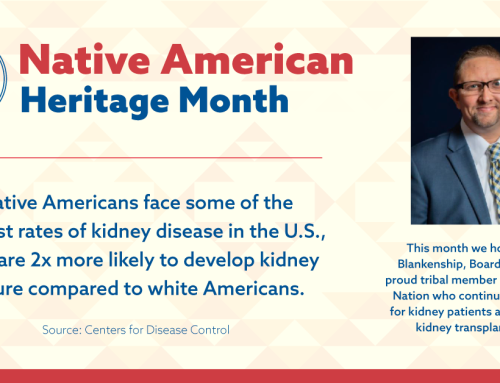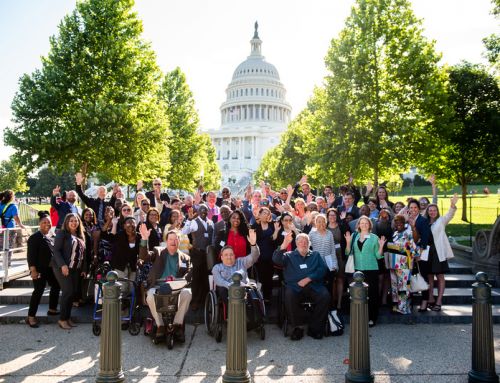For decades, dialysis patients have received financial assistance from nonprofit organizations to help them maintain their private insurance or Medigap coverage. Recently, insurers started to reject these types of payments in an effort to purge kidney patients from their health plans. Jackson Williams, DPC’s Government Affairs Director, and Deborah Darcy, Director of Government Affairs at the American Kidney Fund, presented on this issue at the National Association of Insurance Commissioners’ (NAIC) National Meeting in New Orleans earlier this month.
“For nearly 20 years, the American Kidney Fund has held a Federal Advisory Opinion that enables us to provide grants to low-income kidney failure patients who can’t afford their Medigap and commercial plan premiums, including QHPs in the market place.” Darcy said. “CMS requires insurers to accept third party payments from government entities, tribal organizations, and the Ryan White HIV/AIDS programs.”
Darcy explained how some insurance carriers have been using an insincere interpretation of the CMS guideline to dis-enroll patients. These practices include erroneously claiming the guideline requires them to not accept the third party payment and having enrollees sign a declaration saying the patient does not receive aid from charity assistance.
On the legal side of the issue, Williams spoke on how the practice of rejecting these third party payments violates the Health Insurance Portability and Accountability Act (HIPAA) and is discriminatory toward dialysis patients.
“Under HIPAA, group health plans may not establish rules for enrollee eligibility based on the health or disability of the participant.” Williams said. “Classifying patients on the basis of how their premiums are paid is simply a proxy for singling them out based upon the disease with which the charitable organization making the payments is associated.”
Other than AKF, organizations providing third party payments include Patient Services Incorporated, the Patient Access Network and the National Organization for Rare Diseases.



